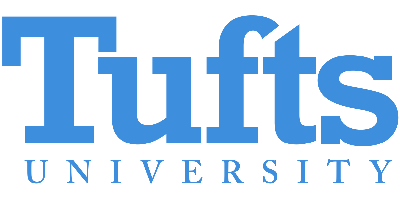Research Engineer
 Tufts University Tufts University | |
 United States, Massachusetts, Medford | |
 177 College Avenue (Show on map) | |
 Apr 22, 2025 Apr 22, 2025 | |
|
Overview
The Center for Applied Brain and Cognitive Sciences (CABCS) is a collaborative research initiative between Tufts University and the U.S. Army DEVCOM Soldier Center that aims to advance the understanding of cognitive capabilities and human-system interactions in high-stakes contexts. The center focuses on five primary research areas: predictive modeling, human-machine integration, team-level performance, physical activity and brain function, and neuroenhancement. By leveraging state-of-the-art facilities and expertise in engineering, mathematics, and neuroscience, the CABCS develops and applies innovative solutions to measure, predict, and enhance cognitive and physical performance, with a profound impact on both academic and defense-related research. The center's research has far-reaching implications for various fields, including healthcare, education, and emergency response, and contributes to the development of practical frameworks for neuroenhancement, ultimately optimizing human performance in critical contexts and driving innovation in multiple sectors What You'll Do We are seeking a Biomedical Research Engineer with a Ph.D. in Biomedical Engineering or a related field and extensive expertise in developing and optimizing 3D in vitro intestinal models to study host-microbiome interactions and drug responses. The ideal candidate has demonstrated proficiency in mammalian cell culture, organoid maintenance, and primary cell isolation, with hands-on experience in molecular and cell-based assays, including ELISA, qRT-PCR, immunostaining, flow cytometry, and enzyme assays. The candidate should have a strong background in data analysis, statistical modeling (e.g., PCA), and visualization tools to interpret experimental results and generate detailed reports for publications. Experience with BSL-2 lab environments, regulatory compliance, and maintaining meticulous documentation in Electronic Lab Notebooks (ELN) is essential. The candidate should also have expertise in tissue engineering and biomaterials with experience in using advanced imaging techniques such as scanning electron microscopy (SEM) and confocal microscopy. Additionally, the candidate has demonstrated leadership and organizational skills by managing multiple projects, collaborating with interdisciplinary teams across academia, industry, and clinical settings, and contributing to scientific publications and conference presentations. A strong understanding of project management, attention to detail, and the ability to balance independent work with collaborative teamwork are critical for success in this role. This is a one year limited term appointment with the opportunity of possible renewal based on funding and continued successful performance in the role. Essential Functions: Design and development of 3D in vitro intestinal models. What We're Looking For Basic Requirements Knowledge and experience typically acquired by:
Preferred Qualifications:
Pay Range Minimum $71,050.00, Midpoint $88,850.00, Maximum $106,700.00 Salary is based on related experience, expertise, and internal equity; generally, new hires can expect pay between the minimum and midpoint of the range. | |


